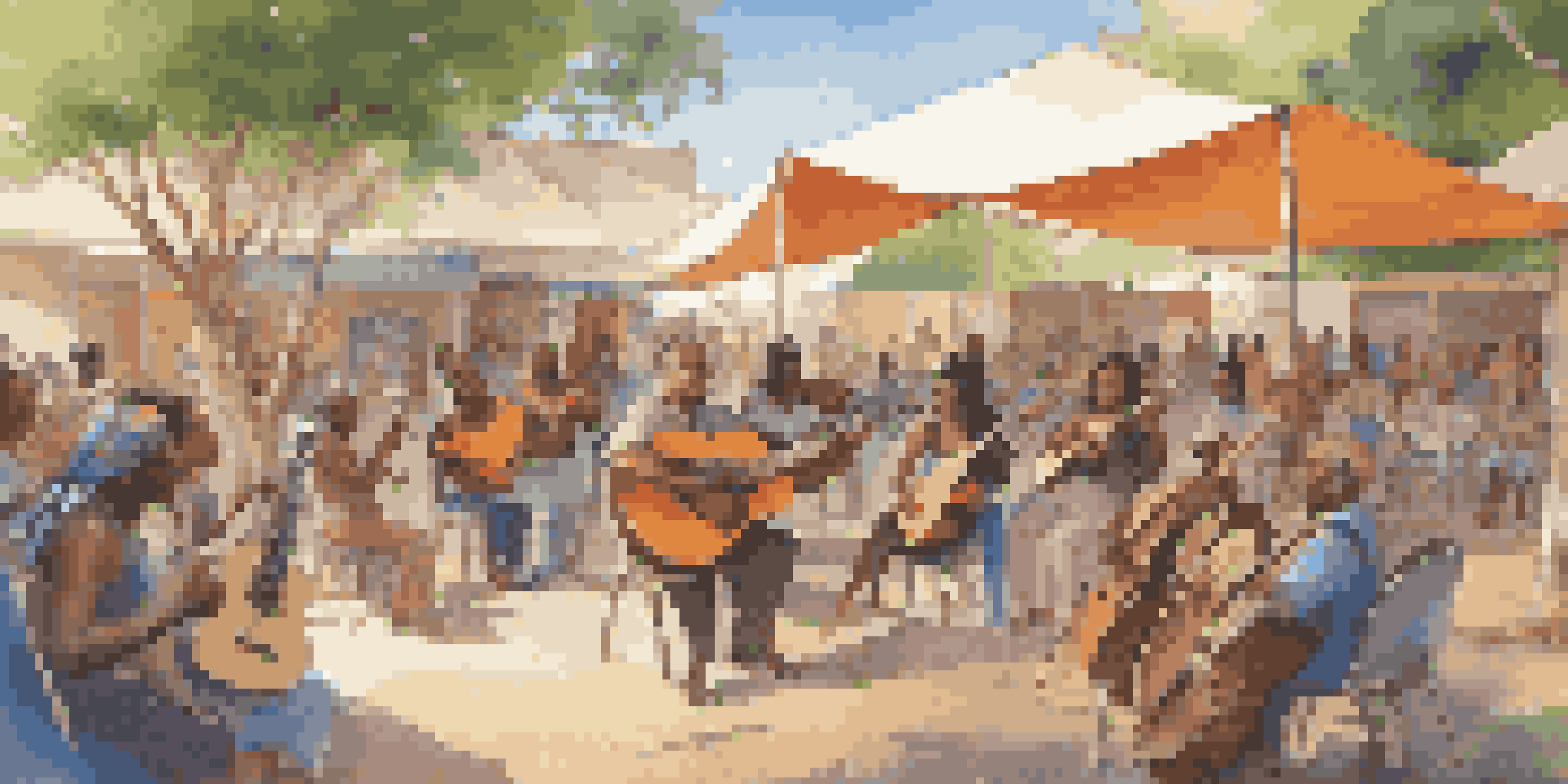Music as a Tool for Reconciliation Post-Conflict

Understanding Music's Role in Healing and Unity
Music has long been a powerful tool for connection and expression, transcending cultural and linguistic barriers. In post-conflict situations, it serves as a vital medium for healing, allowing individuals to express their emotions and experiences. The shared experience of music can foster understanding among diverse groups, creating a sense of unity that is essential for reconciliation.
Case Studies: Successful Music Initiatives in Conflict Zones
One notable example is the 'Songs of Peace' project in Rwanda, which united survivors and perpetrators of the genocide through collaborative songwriting. Through this initiative, participants could voice their stories and emotions, promoting empathy and understanding. Similar projects in other regions, like Colombia and the Balkans, have shown that music can be a bridge, connecting people from opposing sides.
The Psychological Impact of Music on Conflict Survivors
Engaging with music can have profound psychological benefits for conflict survivors. It often helps individuals process trauma, alleviating feelings of isolation and despair. By participating in music-making, survivors can reclaim agency over their narratives and begin to heal both individually and collectively.
Building Community Through Collaborative Music Projects
Collaborative music projects can help rebuild communities fragmented by conflict. By bringing together individuals from different backgrounds to create music, these initiatives promote dialogue and cooperation. This shared creative experience fosters trust, enabling participants to work toward a common goal and rebuild social bonds.
Music as a Medium for Cultural Expression and Identity
In the aftermath of conflict, music can play a crucial role in expressing cultural identities. It allows communities to celebrate their heritage while also acknowledging the pain of the past. This expression can serve as a powerful reminder of resilience and hope, encouraging a sense of belonging among individuals who may feel lost or displaced.
Incorporating Music Education in Post-Conflict Recovery Programs
Integrating music education into post-conflict recovery programs can be transformative. Teaching individuals how to play instruments or compose music provides them with valuable skills and a healthy outlet for expression. This educational aspect not only empowers individuals but also promotes community engagement, reinforcing the idea that healing is a collective journey.
Challenges and Limitations of Using Music for Reconciliation
Despite its potential, using music as a tool for reconciliation is not without challenges. Some individuals may be resistant to engaging in musical activities due to deep-seated trauma or cultural differences. Additionally, without proper facilitation and support, these initiatives can sometimes inadvertently exacerbate tensions rather than alleviate them.
The Future of Music in Promoting Lasting Peace
Looking ahead, the role of music in promoting peace and reconciliation continues to evolve. As technology advances, new platforms for musical collaboration emerge, allowing for greater participation across borders. Harnessing the power of music in innovative ways can pave the way for deeper understanding and lasting peace in post-conflict societies.